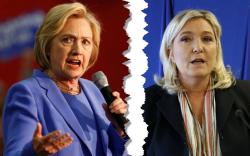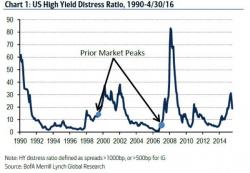Suddenly Trump And Hillary Is All Goldman's Clients Want To Talk About

A little over a month ago, conventional wisdom (and overrated pundits) said that Trump has no chance of being the republican nominee. They were all wrong, but so was the market which continued to ignore the possibility of a Trump presidency until well after the fact. And, as always happens, now is when if not the market, then certainly Goldman's clients are finally trying to catch up. As Goldman strategist David Kostin (who just one week ago warned that there is now a substantial risk of a market drop ahead of the year end), writes "Politics is now a topic in every client discussion."

